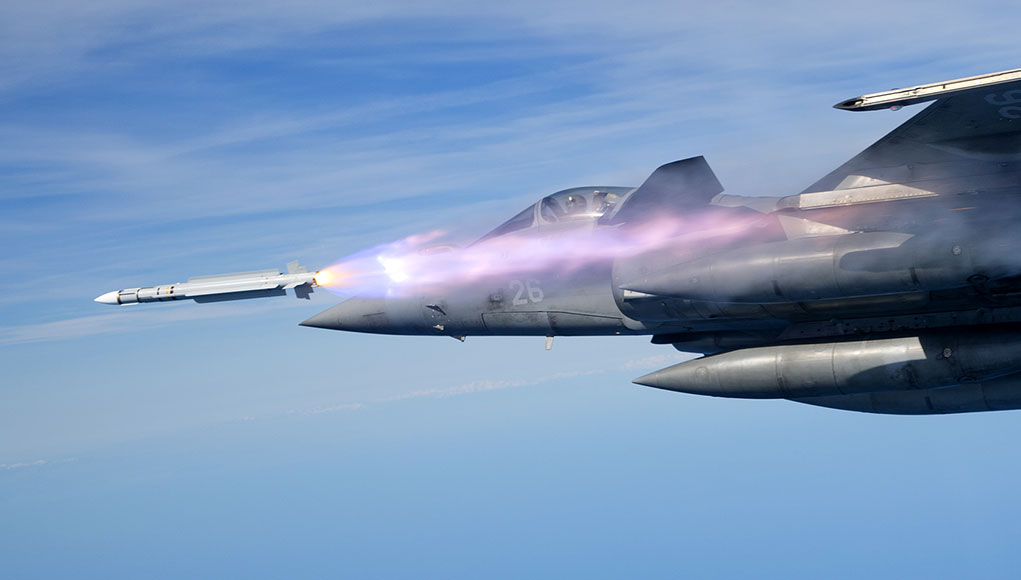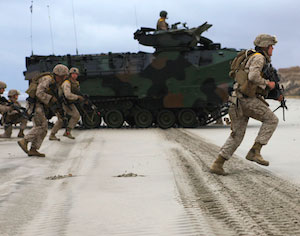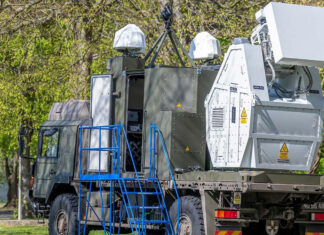Pandurs to Receive Light Weapon Stations
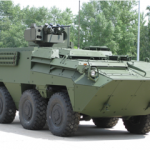
December 7, 2011: Elbit Systems reported today receiving a contract valued approximately $10 million for the supply of 12.7mm LWS to an unnamed European army. The stations are to be installed onboard Pandur 6×6 vehicles and will be supplied over a period of one year. Pandur 6×6 vehicles are currently operational with Austria, Belgium and Slovenia. (Defense-Update)
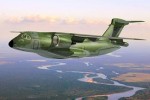
Cobham to Develop an Aerial Refueling System for KC-390
December 7, 2011: Cobham has been selected by Embraer Defense and Security to design and supply the aerial refueling probe for the KC-390 Tactical Military Transport and Tanker Aircraft. Cobham will also develop and supply of the KC-390 wing-mounted aerial refueling pods. Cobham said its light weight yet robust fixed probe solution which matches the high fuel rate delivery demands of the KC-390.
NATO Upgrades BMD C2 System
December 2, 2011: NATO Air Command and Control System Management Agency has awarded ThalesRaytheonSystems a contract to further enhance the Active Layered Theatre Ballistic Missile Defence (ALTBMD) command and control system, upgrading the operational hardware and software of the ALTBMD Interim Theatre Missile Defence (TMD) Capability (InCa). Part of the system to be upgraded is the Air Command and Control System Level of Operational Capability 1 (ACCS LOC1). A fully integrated C2 system for planning, tasking and execution of air operations, NATO ACCS replaces multiple aging air C2 systems in the NATO nations. The current award complements the InCa Step 2 contract awarded to TRS in June 2010. The system has already participated in an operational exercises following its initial fielding in August 2011. Further upgrades meeting operator identified requirements will be included in the latest ACCS configuration.
Norwegian Navy Receives a New Naval Helicopter
November 30, 2011: The first of 14 NH90 NFN multi-mission naval helicopters ordered for the Norwegian Navy was delivered today. The new model will gradually replace the Lynx helicopters currently supporting the Norwegian Coast Guards missions. It will also operate aboard the new Nansen class frigates. The Norwegian NH90s will be based at Bardufoss Air Station. A total of 111 NH90 NFH helicopters have been ordered so far. The NH90 NFH variant is primarily designed for autonomous and joint Anti-Submarine Warfare (ASW) and Anti Surface Warfare (ASuW) missions. Norway is one of five nations selecting the NFH variant together with The Netherlands, France, Italy and Belgium.
KONGSBERG to Upgrade Norwegian NASAMS Air defense Systems
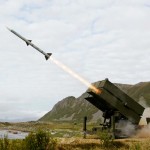
November 29, 2011: Kongsberg will upgrade the Royal Norwegian Air Force NASAMS air defense system through the next two years under a newly awarded 360 MNOK contract. The upgrade provides for new High Mobility Launchers, modernization of existing FDC Command & Control centers and associated training facilities.
French Senate Caps UAV Spending to Favor Reaper Procurement
November 29, 2011: The French selection about the next interim strategic drone for the French Air Force is still not final, with the defense department’s choice to buy the Heron TP offered by a French-Israeli consortium facing stiff political opposition. Last week the French senate capped the funding allocated for UAV acquisition in the 2012 budget program €209, down from €318 million requested by the ministry of defense. This amount was set to meet the procurement of seven IAI Heron TP systems, according to a proposal made to the French defense ministry by Dassault Systems back in May 2011. General Atomics proposed seven ‘off the shelf’ (unmodified) MQ-9 Reaper, along with two ground stations and maintenance for 10 years for a total amount of €209 million. At that time, General Atomics and EADS have also offered the Reaper modified to meet the full French requirements. The Heron TP modified by Dassault to the same standard, would cost €370 million. Following the senate recommendation further debate is expected at the National Assembly defense committee, before a final decision is made.
Chief of RAF: Britain Should Reconsider Sentinel Phaseout
November 23, 2011: The decision to scrap the Sentinel spy plane under defense cuts is to be reviewed. According RAF Air Chief Marshal Sir Stephen Dalton, during the six month Libyan campaign the aircraft has played a ‘pivotal’ role in spotting and identifying Colonel Gaddafi’s forces. Dalton insists the Sentinel R1 should be retained within his air forces’ force structure. Under the Strategic Defence and Security Review (SDSR), all five Sentinels have been listed for withdrawal from service by 2015. (Defense-Update)
Roll Out of the First F-35 for the UK
November 22, 2011: The UK will receive its first F-35B Joint Strike Fighter next year. The aircraft, the first to be delivered to an international customer, rolled off the production line and will join the test flights after final inspection. The UK plans to operate the F-35 from both the land bases the new Queen Elizabeth Class aircraft carrier. Originally the UK planned to use the F-35B STOVL variant however, following delays and cost increases, London opted to buy the Carrier Variant F-35C instead.
Swedish Army Gets its first Kodiak
November 21, 2011: The Swedish armed forces procurement agency (FMV) has received the first “Kodiak” armored engineering vehicle AEV 3 S delivered by the German company Rheinmetall Landsysteme. Based on a mine protected Leopard II chassis, powered by a 1,100 kW diesel engine, AEV 3 S is a heavy-duty combat engineering system that falls into the military weight category MLC 70. The Kodiak is equipped with a powerful hinged-arm excavator with different excavator tools, a dozer system featuring cutting and tilt angle settings, or a mine breaching plough. The vehicle also uses a double-winch system consisting of two 9-ton capstan winches. For self-protection, the vehicle is equipped with a remote control weapon station and a smoke grenade launcher system. The vehicle is operated by a crew of 3, all systems can be employed from the inside, utilizing six monitoring cameras.
Rheinmetall manufactures and markets the Kodiak worldwide as part of a consortium with RUAG Defence, the strategic technology partner of the Swiss armed forces. Netherlands and Sweden placed an order worth about €100 million for 16 vehicles in 2008, six destined for Sweden and ten for the Dutch Army.
EU short on anti-piracy ships due to budget cuts
Protecting merchant ships in the western Indian Ocean, off the coast of Somalia and along the Red Sea is facing a shortage of ships as budget cuts are limiting the availability of naval vessels. According to General Hakan Syren, chairman of the EU Military Committee, the alliance is required to sustain a minimum of four to six warships to patrol the coast but in December 2011 the number of ships available for the mission will drop below that. The situation may be getting better by March next year, Syren added. Spain, France and Germany are the main contributors to the mission, with Italy, The Netherlands and Belgium also taking part in the operation which has been extended until the end of next year.
The operation could count on around 10 warships when it was launched in 2008, but the average has come down to around six or seven vessels to patrol the area. The actual requirement for naval escort also depends on weather conditions, as during the monsoon season pirate activity may drop.
Sweden Delivers BvS10 to France
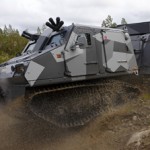
Swedish company Hägglunds AB (a subsidiary of the BAE Systems group) delivered the first batch BvS10 all terrain vehicles amphibious (VHM) to the French Army. The Swedish company has partnered with French armored vehicle manufacturer Panhard to deliver all 53 vehicles by the end of 2012. After receiving the vehicles Panhard proceeds with the integration of mission systems equipment including weapons, radios and information systems. The delivery followed the completion of the vehicle’s qualification through eight months of intensive testing by the French military

BAE Systems Fund Invests in Data Visualisation
BAE Systems Investment In Innovation is investing in a technology that allows participants from across the globe to collaborate in analyzing and visualizing shared data. To facilitate such network the company is investing in new 3D immersive visual analytics tools developed by Daden Limited of Birmingham, The program will be managed under BAE Systems Investment In Innovation (I3) program.
Trying to derive meaning from this unstructured data is difficult and requires both analytical processes and intuitive human understanding. The new system will bridge between experts in different locations, combine diverse data sources, formatting it into meaningful presentation. Allowing users to view data from different perspectives in a 3D immersive environment, the system will use aiding retention and recall whilst supporting decision and sense-making. The new application will import historic or real-time information from different sources ranging from databases and web feeds, through social network and computer network data, to real-world sensors, GPS trackers and CCTV cameras. Daden’s application will support real-time operations, security and emergency planning, as well as collaborative learning and training and simulation exercises, providing a highly cost-effective method for effective collaboration.
Terma Introduces ALQ-213 ECM-Pod Enhancements
Terma is launching an upgrade for the AN/ALQ-213 Electronic Countermeasure system, offering a modern version of the Countermeasures Management System Processor otherwise known as the Electronic Warfare Management System (EWMS). The enhanced processor will support new capabilities including Radio Frequency sensor integration, sensor fusion, geo-location capabilities, networking, and situational awareness improvements. (Defense-Update)
Opening the Night For Danish F-16 Pilots
Night Attack The Royal Danish Air Force has validated the use of Night Vision Cueing and Display/ Aviator’s Night Vision Imaging System (NVCD/ ANVIS) on its F-16s, offering a night vision enhancement for the daylight functionality provided by standard Joint Helmet Mounted Cueing System (JHMCS). The system was flown for more than 300 hours as part of Operation Unified Protector during the summer of 2011. (Defense-Update)
MAMBA (SAMP/T) Scores First Hit in an Operational Test
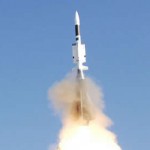
November 14, 2011: The French air force conducted a successful firing of an Aster 30 missile fired from a SAMP/T system, intercepting a Rafael Black Sparrow target, representing a theater ballistic missile-type threat. This was the second, successful, ATBM firing with a SAMP/T system. The first was conducted on 18 October 2010. This test followed the first operational training firing conducted two months ago, where an Air Force training unit intercepted an aerial target (aircraft). Designated as ‘Mamba’ in French Air Force service, the new capability is expected to become operational by the summer of 2012, assuming full responsibility for the air defense of French forces deployed overseas and defending high-value targets on French territory. Mamba was declared operational by French Air Force, on 12 October 2011, with France operating seven systems and Italy operating three. SAMP/T is to become the cornerstone of Italy and France’s contributions to the North Atlantic Alliance tactical ballistic missile defense capability.
Past reports
European Defense Update – November 18, 2011
European Defense Update – November 1, 2011
European Defense Update – October 23, 2011
European Defense Update – September 27, 2011
European Defense Update – September 2, 2011

